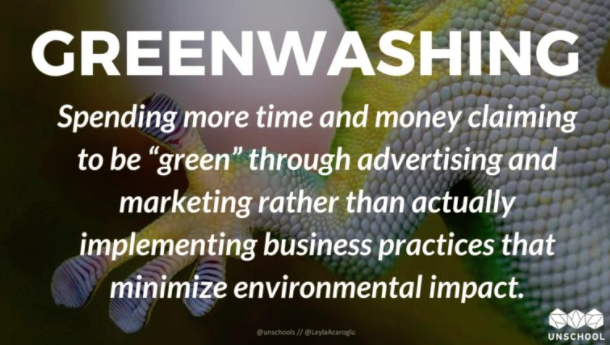Worried I’m becoming a tree-hugger as this blog seems to return to how banks put profits before people more and more often. Nevertheless, here are the facts:
Banks have invested $3.8 trillion into fossil fuels since the Paris Agreement came into force on 4 November 2016 …

Which banks?
JP Morgan Chase & Co
- Worst Bank for funding of fossil fuels, and has been for the last five years.
- Since the Paris Agreement, JPMorgan has driven $317 billion into fossil fuels, this is 33% more than the second highest, Citibank, with $51 billion funded in 2020.
- JPMorgan is among the largest funders of fossil fuel expansion companies, tar sands and oil projects, arctic oil and gas, offshore oil and gas, coal mining, fracked oil and gas, and liquified natural gas (LNG).
Active projects include:
- Keystone XL pipeline line 3, which infringes on indigenous peoples’ rights by cutting through the Ojibwe people’s territory
- Oil exploration in the Arctic National Wildlife refuge
- Drilling in the Barents Sea, home to Walruses, Polar Bears, Narwhals and Beluga Whales, in which the oil industry has no effective way of removing oil from the ice in the event of spillage
- Adani coal mines in Queensland, tapping into one of the largest coal reserves in the world, facilitating an increase of coal parts along the great Barrier Reef coast
- Fracking in the Vaca Muerta, Argentina, which has the reserves of enough oil and gas to produce 8.7 gigatons of CO2 equivalent.
- LNG extraction in Mozambique, which has forced 550 families of the poorest people in the world out of their homes, left without jobs and faced with brutality from the military who are defending the industry.
- Coastal GasLink Pipe in British Columbia, which will take fracked gas 420 miles to the LNG Canada terminal. This will go through indigenous land, which the indigenous people have faced military raids due to their opposition.
Meanwhile, JP Morgan economists warn that the climate crisis is a major threat to the human race.
Thanks.
CitiGroup
- Second worst fossil bank in world
- Since the Paris Agreement was made in 2016, invested $237 billon in fossil fuel firms
- Has no policy restricting financing of liquified natural gas (LNG)
- Citi is one of the largest funders of LNG, tar sands (which it funded more in 2020 than in 2016), arctic oil and gas, offshore oil and gas (which it funded more in 2020 than in 2016), fracked oil and gas, and is the worst funder of coal outside of china, having more than doubled its funding of coal in 2020 compared with 2016 levels.
- Citi’s funding of 100 key companies with the worst fossil fuel expansion plans (like ExxonMobil and Enbridge) is on the rise.
In 2020:
- $943 million on Tar Sands Oil ($3.5 billion since 2016)
- $484 million on Arctic Oil and Gas ($1.5 billion since 2016)
- $10.7 billion on Offshore Oil and Gas ($28.3 billion since 2016)
- $9.6 billion on Fracked Oil and Gas ($38.9 billion since 2016)
- $1.9 billion on LNG ($8 billion since 2016)
- $208 million on Coal Mining ($1.5 billion since 2016)
- $1 billion on Coal Power ($5.7 billion since 2016)
Meanwhile: “Citi is committed to advancing solutions to address climate change around the world. We’re building upon our long track record of sustainable finance commitments” – Citi’s website.
Really?
Wells Fargo
- Third worst fossil bank in world
- Since the Paris Agreement was made in 2016, invested $223 billon in fossil fuel firms
- Still the worst bank for financing fracking (four years in a row)
In 2020:
- $26 billion invested in fossil fuel firms
- $12 billion on Fossil fuel expansion ($70 billion since 2016)
- $61 million on Tar Sands Oil ($911 million since 2016)
- $650M on Offshore Oil and Gas ($1.7 billion since 2016)
- $10 billion on Fracked Oil and Gas ($54 billion since 2016)
- $331 million on LNG ($719 million since 20116)
- $619 million on Coal Power ($2.6 billion since 2016)
Meanwhile, they state: “as a leading global financial services company, we have a significant role to play in helping to address social, economic, and environmental challenges”.
You do so just do it.
Barclays
- Europe’s largest bank funder of fossil fuels overall by a 31% margin
- Europe’s largest funder of tar sands, fracked oil and gas and coal power
- £105 billion into fossil fuels since 2015
- Largest non-US banker of fracking, increased fracking by 24% from 2019
- 4th largest non-Chinese funder of coal
Meanwhile, Barclays claim that they “deploy finance responsibly to support people and businesses, acting with empathy and integrity, championing innovation and sustainability, for the common good and the long term.”
No you don’t. Why don’t you?
HSBC
- Europe’s second largest bank funder of fossil fuels
- £81 billion into fossil fuels since 2015
Meanwhile, “the HSBC Centre of Sustainable Finance [provides] thought leadership about transforming the real economy and strengthening the financial system response to climate change”.
I don’t call that leadership.
Oh, and don’t forget the worst of the worst is BlackRock.
I could go on, but my point is that all of these banks use greenwashing PR for showing how lovely they are. They’re not. They need to act and change things demonstrably and stop just talking about it. Otherwise you will get caught out.
Standard Chartered
Our vision is to be the world’s most sustainable and responsible bank.
Related: Disruptive Innovation Could Be Preferred Avenue to Sustainable Investing

